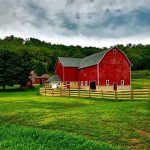 Were you or any of your ancestors born or raised on a farm? Have you ever spent time on a working farm where you milked a cow, fed the chickens, plowed a field, baled hay, or harvested crops?
Were you or any of your ancestors born or raised on a farm? Have you ever spent time on a working farm where you milked a cow, fed the chickens, plowed a field, baled hay, or harvested crops?Does the bucolic life attract you or does it lack appeal?
Think back about Farms and share forward! Start Writing Read Stories


 Most of us love going to the beach for a vacation or just a day spent swimming, sunning, reading, or simply relaxing.
Most of us love going to the beach for a vacation or just a day spent swimming, sunning, reading, or simply relaxing. Do you like surprises — whether they be parties in your honor, chance encounters with old friends or lovers, or other unexpected happenstances?
Do you like surprises — whether they be parties in your honor, chance encounters with old friends or lovers, or other unexpected happenstances? Are you a collector? If so, what do you collect? Stamps or coins? Baseball cards? Fine art? Antique automobiles?
Are you a collector? If so, what do you collect? Stamps or coins? Baseball cards? Fine art? Antique automobiles? You may not be a boat owner yourself or a skillful sailor, but we’ve all been on boats in our lives.
You may not be a boat owner yourself or a skillful sailor, but we’ve all been on boats in our lives.